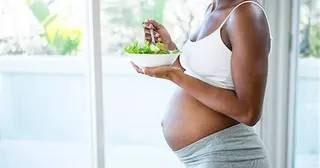According to entrepreneurng.com, Pregnancy is a time of great joy and anticipation, but it also comes with increased responsibility, especially when it comes to your diet. The foods you consume during pregnancy play a crucial role in your baby’s development and overall health. While it’s essential to focus on a balanced and nutritious diet, there are certain foods that you should avoid to ensure the safety and well-being of both you and your baby.
Here is a list:

Raw Seafood
Raw or undercooked seafood, including sushi, sashimi, and shellfish, can be a source of harmful bacteria and parasites like listeria and salmonella. These can lead to foodborne illnesses that may pose risks to the health of the developing fetus. It’s best to opt for fully cooked seafood during pregnancy.
Unpasteurized Dairy Products
Unpasteurized milk, cheese, and other dairy products can contain harmful bacteria, particularly Listeria, which can cause serious complications during pregnancy. Always choose pasteurized dairy products to reduce the risk of infection.
High-Mercury Fish
Certain types of fish, such as shark, swordfish, king mackerel, and tilefish, are known to have high levels of mercury. Mercury exposure can harm the developing nervous system of the baby. Instead, opt for low-mercury fish like salmon, sardines, and trout, which provide essential omega-3 fatty acids beneficial for the baby’s brain development.
Meats and Soft Cheeses
It can harbor Listeria bacteria. It’s advisable to heat meats until they are steaming before consumption and opt for pasteurized versions of soft cheeses.
Excessive Caffeine
High caffeine intake during pregnancy has been associated with an increased risk of miscarriage and low birth weight. While it’s generally safe to consume a moderate amount of caffeine, it’s wise to limit your intake. Consider switching to decaffeinated beverages or herbal teas to stay hydrated.
Raw Eggs
Raw or undercooked eggs can contain salmonella, a bacterium that can lead to food poisoning. Avoid foods prepared with raw eggs, such as homemade mayonnaise or some salad dressings. Opt for pasteurized egg products when necessary.
Conclusion: Foods

During pregnancy, it’s crucial to prioritize the health and safety of both you and your growing baby. While the list of foods to avoid may seem restrictive, it’s essential to remember that these precautions are in place to mitigate risks and ensure a healthy pregnancy. Always consult with your healthcare provider for personalized dietary recommendations during pregnancy, as individual needs and circumstances can vary. By being mindful of your food choices and avoiding these potential hazards, you can contribute to a safer and healthier pregnancy journey.










